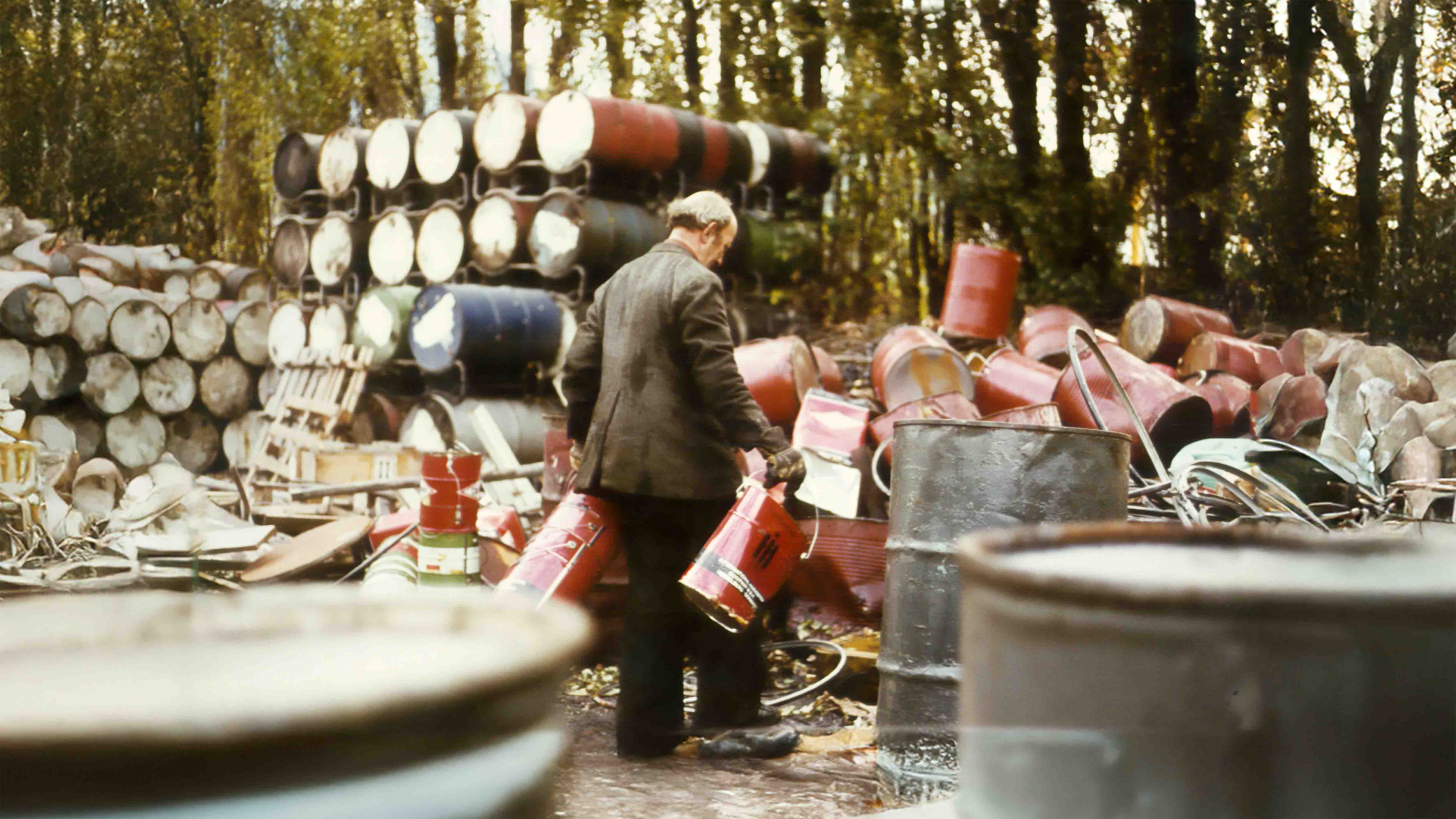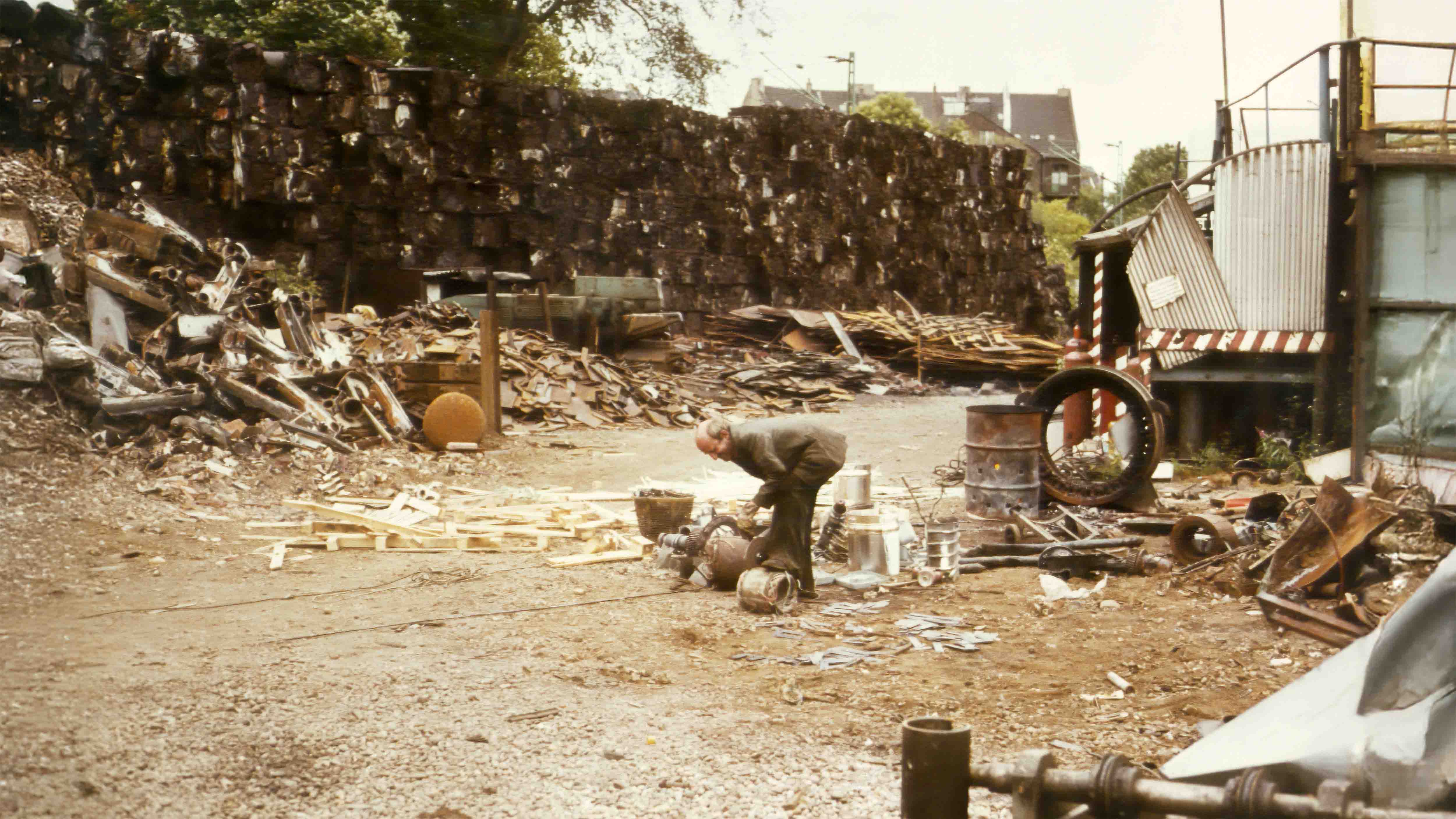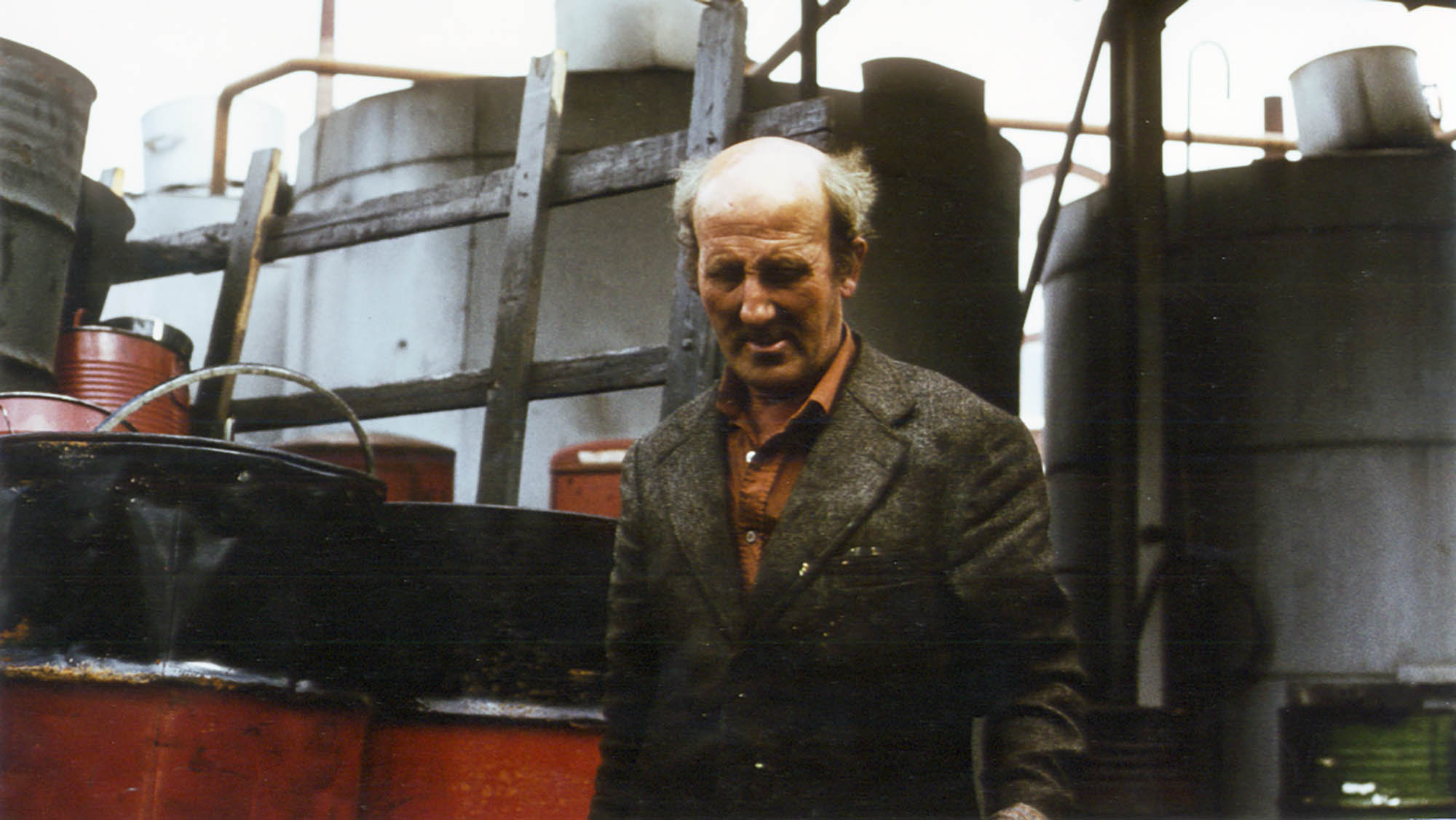
Content
Someday a friend of mine, a junk dealer, told me about an old man, who collects every usable item in the streets of Düsseldorf and who lives in an old container that doesn't even have a window or electricity.
At christmas time the junk dealer had once invited him to celebrate Christmas with him and his family. But Scrapyard-Willi said: "No, I don´t have time. I have to go to the shore and feed the rats. "
He drives his tractor through the pedestrian zone, breaks glass, feeds rats and does what he wants: that's Scrapyard-Willi.
His nickname comes from the time when he picked up old car seats from junk dealers and burned them at the shore of the Rhein. The metal leftovers he sold back to the junk dealers. His home is an old wooden container with nailed up windows and without electricity. It was put down on an old decayed junkyard in a district which most Düsseldorfers never visit.
Willi hebt eine EisenstangeThese empty streets of cobblestone, the walls of brick and the wooden fences with tattered posters, the dumps, the goods stations, the cable car depots, the junkyards and material recycling allows him to back out of the state-run system of accommodation, assurance and order. Here he can create his life in the way he wants to, with as much autonomy as is possible within the structure of an organised state, that organisation always having been restriction and restraint to him.
Only at night Willi goes back to this place to sleep a bit. During the day he does what he has been doing since World War II. Back then, as one of the privileged owners of a handcart, he started to search the debris for everything he could sell or trade. The things he collects or sells have largely remained the same. Only the places where to find them have changed. Nowadays there are no bomb-attacks to help him retrieve the little treasures, it is the deterioration of poetry within the human mind that delivers the goods into Willi's hands: perfectly usable objects, disrespectfully abandoned in favor of the shiny new version.
 Scrapyard-Willi dismantles alternators and transformers in a junkyard
Scrapyard-Willi dismantles alternators and transformers in a junkyard
Press Reviews
Funk-Korrespondenz
„... One great impressing, detailed and felicitous biographie. Such coherent, the story supporting and pictographic contrasting assozialtions that catch the viewers interest is very seldom. On that score Allary chanced something completely new concerning his filmic direction. Calm and atmospheric camera settings give the film an imperssionistic timbre and let us experience a dimenson of thoughts and emotions of a person, which is very difficult to get across to the viewers.“
Josef Nagel
Stuttgarter Nachrichten
„With this portrait Allary succeeded in creating a wonderfull, committed, human film in which everything that is accepted in normal life becomes questionable, except for the respect for life. In his pictures the fassades of our cities of prosperity become fragile and cool: babylonic towers, with big chaos behind the fassade of order and with much lonelyness which adorns itself with deadwood and glitter. Scrapyard-Willi became a film about the cold of our cities and the try enshire oneself a place to survive, where everything ends.“
Thomas Thieringer
Badische Zeitung
"Mathias Allarys documentary fairy tale about scrapyard-Willi from Düsseldorf mystified the viewers with alive pictures. A film with new perspectives."
Süddeutsche Zeitung
"Allary compares and builds contrasts: for example the shop windows in the pedestrian zone and the scrapyard`s dump, or the polished skyscraipers in contrast to the silouettes of the factories. The difference detaches terms like beauty or ugly. In the film ‚scarpyard-Willi‘ you can see something that too often lacks in other german films: the description of procedures and of the way something is done. “
Michael Althen
Münchner Merkur
„With unintrusive, impressing pictures shows who he thinks is the more aware and intensive human. By telling the story on many different levels learns the audience to understand but as well to critizise our mentality of chucking away everything which only hardly covers our lonelyness with luxury and consum.“
Olaf Kracht

Festivals
- Turin, Festival Giovanni
- Figueira da Foz
- Bilbao
- New Delhi
Data
- Original title: Polster-Willi (Documentary, 1984)
- Duration: 75 min.
- Format: 16 mm, Colour
Availability
- Filmcopies, 16 mm, available in English, Portuguese and Spanish
- DVD available in English
Crew
- Director and Cinematographer: Mathias Allary
- Loader: Jochen Löbbert
- Location-Sound: Gottfried Junker
- Editor: Rainer Standtke
- Music: Raimund Rennebaum
- Lab: Geyer München
TV
- ZDF Kleines Fernsehspiel

 Español
Español  Deutsch
Deutsch  Français
Français  English (US)
English (US)